This post is part of a virtual book tour organized by Goddess Fish Promotions. The author will award a $20 Amazon/BN GC to a randomly drawn winner and an autographed copy of the book to a second randomly drawn winner. Click on the tour banner to see the other stops on the tour.
As an author, what scares me the most is…
Nothing-really, I must check and recheck my research. That is important.
The hardest part about writing is…
Exhaustion. I can only write 2 hours a night because I write stream of consciousness; I must keep on going not to lose thread of the moments of the story
Character interview with Michael:
“Michael, what do you think of Ron in Reflections on the Boulevard?”
He taught me a lot about my truth and my freedom; I do not want to neglect how to sit on benches.
“What do you think about yourself in Reservoir Men?”
I had a painful journey, but I learnt the true mystery of life sitting by the river.
Ideal writing space
I write in my office overlooking my garden
Michael’s story continues from “A Reservoir Man” (2022) where we find him teaching at a university ready to retire. He unexpectedly meets a young man named Ron who becomes his protégé and journeys with him in a haphazard adventure throughout America and Europe. In Michael’s final journey in life, each twist and turn of the road brings unexpected adventures. The journey taken is one of joy, friendship, and discovery.
Enjoy an Excerpt
On one particularly bumpy part of the trail, Michael assured Ron.
“You look great and natural on that mule! Like Gene Autry!” Ron was falling over now, off the mule. Ron had some choice language for Michael. After a minute he also asked, “Who is Gene Autry?”
“He was the cowboy who sang ‘Don’t Fence Me In’!”
The mule train proved to be extraordinary. The views were spectacular; being inside the canyon was the best. The formation of the rocks was either tilted, straight, or flat. The horizontal layers of rocks produced the colors yellow, red, and blue. The mule and Ron were no problem; he was a natural mule rider. Thank heavens he told the mule about his relationship with Rhonda – that was the key to their bonding. Ron had a wonderful time, even if his butt was in pain. He felt the saddle was still attached to his bottom even after they left.
They found a bench looking at their incredible view of the North Rim. Michael turned to Ron telling him how nice and cool their friendship was. Michael agreed.
“I had so many friends and partners, but I was never able to have as much fun and conversations as I have had with you, Ron.”
“Partners like Gail, your former business partner?” Ron asked.
Michael playfully responded, “No, like loving, and those other things.”
About the Author:
Louis J. Ambrosio ran one of the most nurturing bi-coastal talent agencies in Los Angeles and New York. He started his career as a theatrical producer, running two major regional theaters for eight seasons. Ambrosio taught at seven universities. Ambrosio also distinguished himself as an award-winning film producer and novelist over the course of his impressive career.
Buy the book at Barnes and Noble, Amazon, iBooks, Kobo, Thalia, Smashwords, or Vivlio.






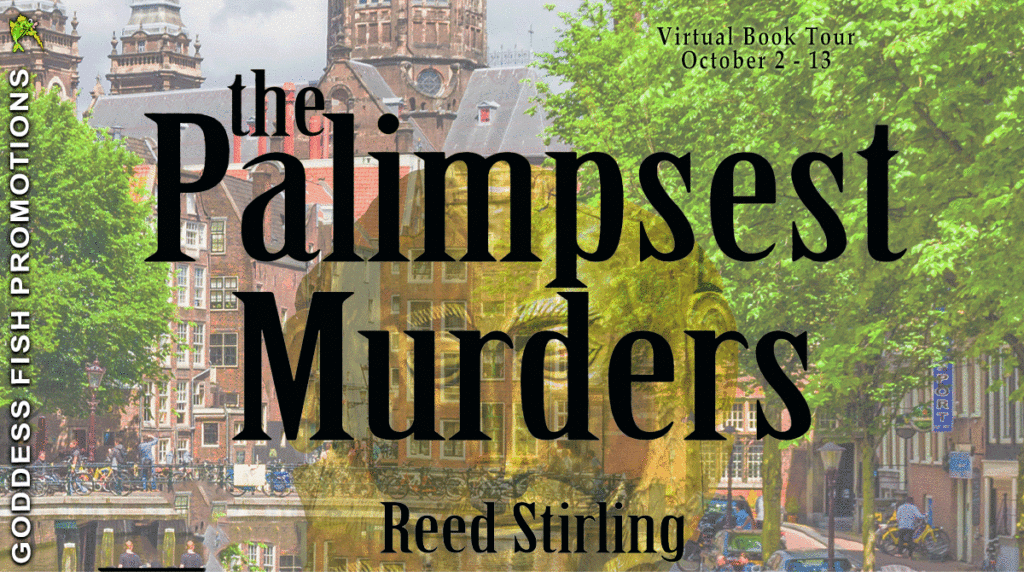
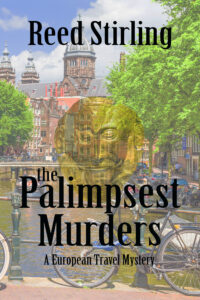 Day one: check-in on the Iphigenia, a Boat & Bike home for thirty guests of diverse backgrounds on a one week excursion through Holland and Belgium. Personalities clash, conflicts arise.
Day one: check-in on the Iphigenia, a Boat & Bike home for thirty guests of diverse backgrounds on a one week excursion through Holland and Belgium. Personalities clash, conflicts arise.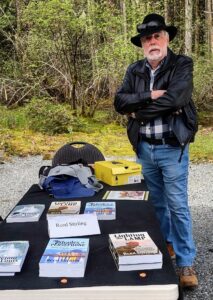 Reed Stirling lives in Cowichan Bay, BC, and writes when not painting landscapes, travelling, or taking coffee at The Drumroaster, a local café where physics and metaphysics clash daily. Before retiring and taking up writing novels, he taught English Literature. Several talented students of his have gone on to become successful award-winning writers.
Reed Stirling lives in Cowichan Bay, BC, and writes when not painting landscapes, travelling, or taking coffee at The Drumroaster, a local café where physics and metaphysics clash daily. Before retiring and taking up writing novels, he taught English Literature. Several talented students of his have gone on to become successful award-winning writers. 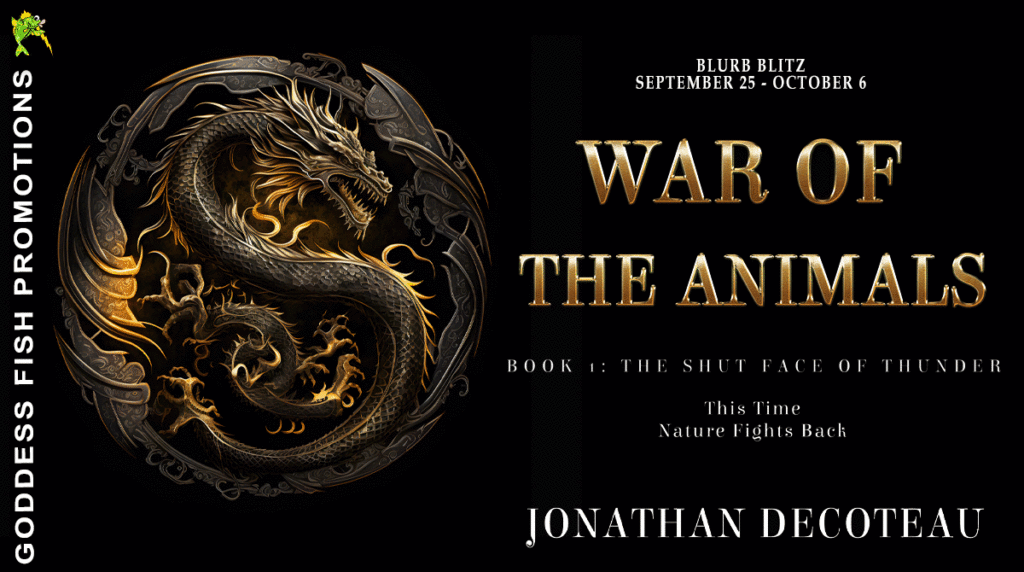
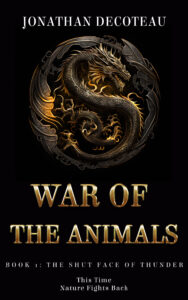 Mankind struck first. This time, nature fights back…
Mankind struck first. This time, nature fights back… I am a nature lover who lives and teaches in beautiful, pastoral New England.
I am a nature lover who lives and teaches in beautiful, pastoral New England. 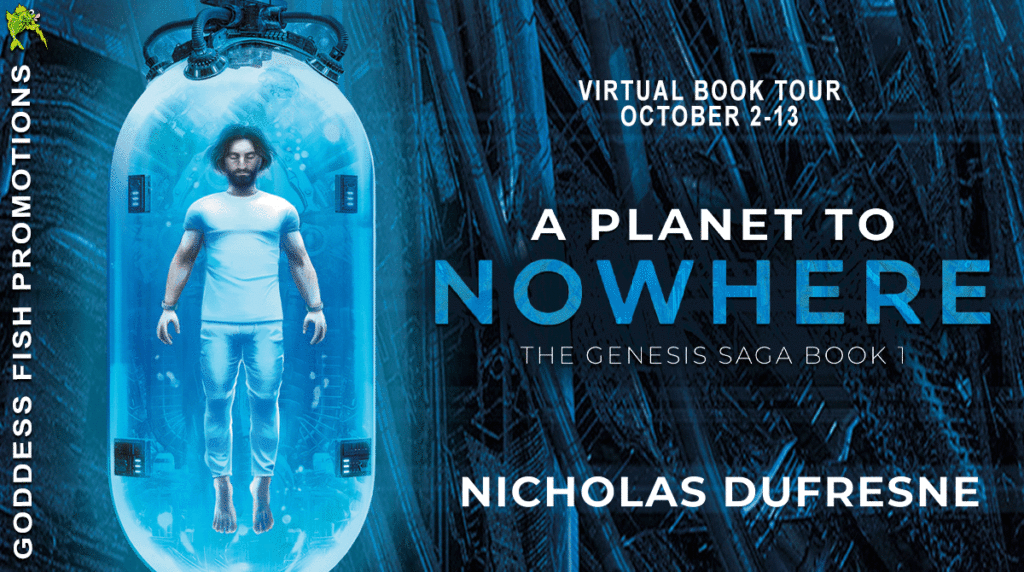
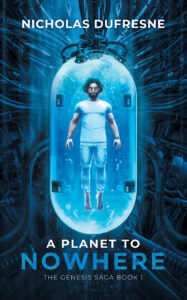 Adrian thought his time as a human experiment was over, that he was done suffering and had finally died. Never did he expect to wake up somewhere new, somewhere alien and far different than he could’ve ever imagined.
Adrian thought his time as a human experiment was over, that he was done suffering and had finally died. Never did he expect to wake up somewhere new, somewhere alien and far different than he could’ve ever imagined.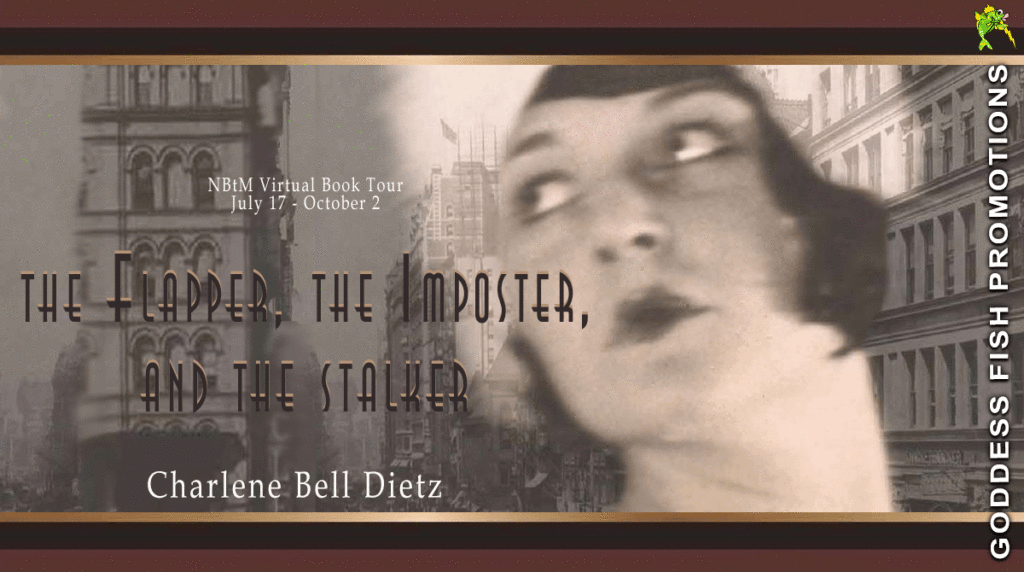
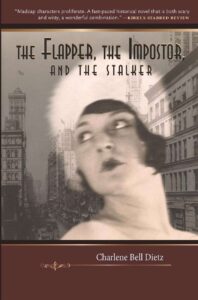 A privileged teenager from Minneapolis in 1923, scraps her college scholarship and runs away to become a flapper in dangerous, chaotic Chicago. In her search for illusive happiness, she confronts the mob and then must contrive a way to not be murdered.
A privileged teenager from Minneapolis in 1923, scraps her college scholarship and runs away to become a flapper in dangerous, chaotic Chicago. In her search for illusive happiness, she confronts the mob and then must contrive a way to not be murdered. Charlene Bell Dietz’s award-winning mystery novels The Flapper, the Scientist, and the Saboteur combines family saga with corporate espionage, and The Flapper, the Impostor, and the Stalker propels readers back into 1923 in frenetic Chicago. The Scientist, the Psychic, and the nut gives readers a frightening Caribbean vacation. Her latest novel The Spinster, the Rebel, and the Governor is a historical biography about Lady Margaret Brent, the first American woman to be called an attorney, whose integrity and intelligence saves pre-colonial Maryland from devastation. This book won the New Mexico Press Women’s first place award and an award by the National Press Women. The Spinster, the Rebel, and the Governor will be released as a second edition by Artemesia Press in February 2024. Two of her Flapper books have won the coveted Kirkus stars, and two were named best book of 2018. Charlene, a retired educator, lives in the foothills of the mountains in central New Mexico where abundant wildlife, solitude, and natures’ beauty inspires her creativity.
Charlene Bell Dietz’s award-winning mystery novels The Flapper, the Scientist, and the Saboteur combines family saga with corporate espionage, and The Flapper, the Impostor, and the Stalker propels readers back into 1923 in frenetic Chicago. The Scientist, the Psychic, and the nut gives readers a frightening Caribbean vacation. Her latest novel The Spinster, the Rebel, and the Governor is a historical biography about Lady Margaret Brent, the first American woman to be called an attorney, whose integrity and intelligence saves pre-colonial Maryland from devastation. This book won the New Mexico Press Women’s first place award and an award by the National Press Women. The Spinster, the Rebel, and the Governor will be released as a second edition by Artemesia Press in February 2024. Two of her Flapper books have won the coveted Kirkus stars, and two were named best book of 2018. Charlene, a retired educator, lives in the foothills of the mountains in central New Mexico where abundant wildlife, solitude, and natures’ beauty inspires her creativity.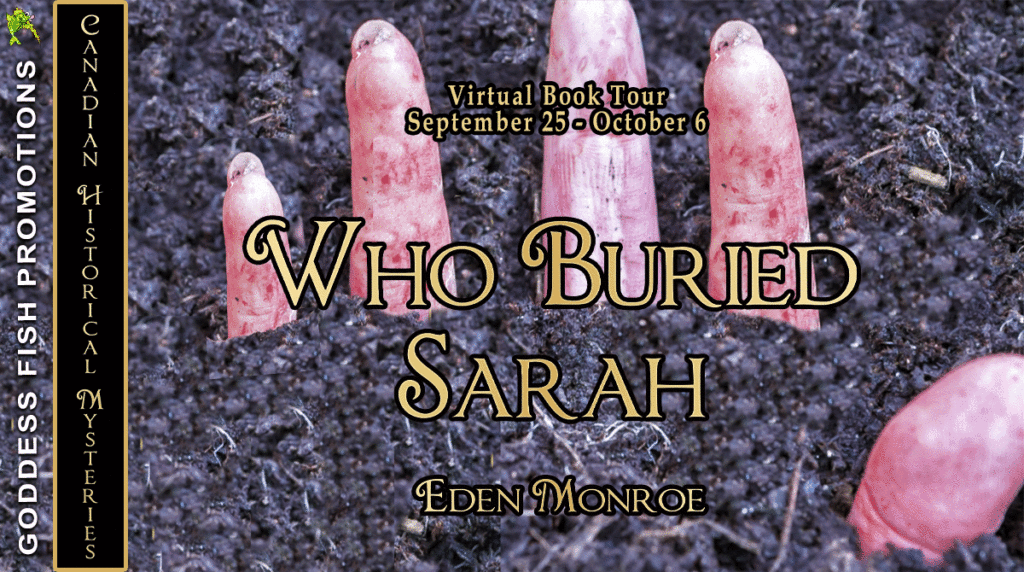
 Sarah, the only child of Rev. and Mrs. Cranston Estey, was betrothed to Connor McLagen of the affluent McLagen family. The McLagens were socially revered, although there were rumours of nefarious underpinnings to their substantial wealth, and the God-fearing Esteys were not in favour of the marriage.
Sarah, the only child of Rev. and Mrs. Cranston Estey, was betrothed to Connor McLagen of the affluent McLagen family. The McLagens were socially revered, although there were rumours of nefarious underpinnings to their substantial wealth, and the God-fearing Esteys were not in favour of the marriage. Eden Monroe writes about real life, real issues and struggles, and triumphing against all odds. A proud east coast Canadian, she enjoys a variety of outdoor activities, and a good book.
Eden Monroe writes about real life, real issues and struggles, and triumphing against all odds. A proud east coast Canadian, she enjoys a variety of outdoor activities, and a good book.





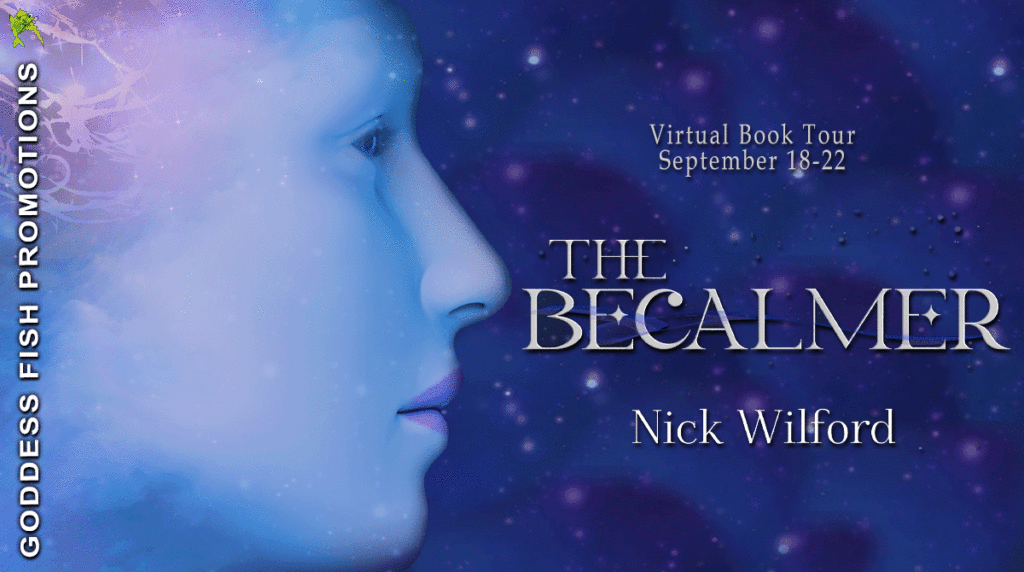
 Harica is gifted with the ability to defuse conflicts using her mind. When she is recruited to assist in resolving a war via an arranged marriage, she discovers that the reluctant bride-to-be has similar powers. Princess Jasmila doesn’t use her powers for good and when Harica arrives to help with the marriage arrangements, she fights back and sends Harica into a coma.
Harica is gifted with the ability to defuse conflicts using her mind. When she is recruited to assist in resolving a war via an arranged marriage, she discovers that the reluctant bride-to-be has similar powers. Princess Jasmila doesn’t use her powers for good and when Harica arrives to help with the marriage arrangements, she fights back and sends Harica into a coma.






















